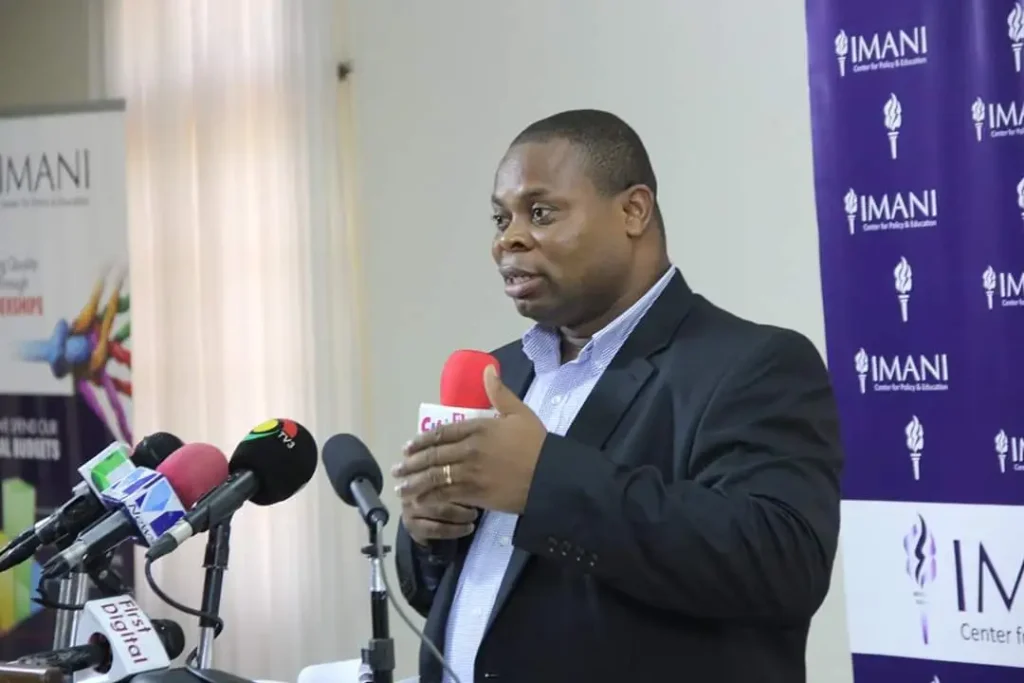The political arena in Ghana has always been rife with bold claims and lofty promises, but the current state of the nation’s economy paints a stark picture of unfulfilled commitments.
Franklin Cudjoe, Founding President of IMANI Centre for Policy and Education, in a scathing critique of the current administration, laid bare the economic missteps of President Akufo-Addo and Vice President Dr Mahamudu Bawumia in a manner that demands reflection.
Franklin Cudjoe drew an incisive comparison between the economic governance of former President John Dramani Mahama and the current administration.
According to him, former President Mahama’s stewardship in 2016 earned a “B-” rating from international observers—a passable grade, though not stellar.
“Dr. Mahamudu Bawumia and his boss Nana Addo boasted they would beat Mahama’s B-rated mark. They sat and thought through it all and appointed 123 ministers & over 1200 presidential staffers claiming the number was right so they could fix Ghana.
“After 8 years of reckless borrowing with over 780 billion cedis in debt, they succeeded in moving Mahama’s B- -rated economy to junk status”.
Franklin Cudjoe, Founding President of IMANI Centre for Policy and Education
Perhaps the most damning indictment from Mr Cudjoe is the administration’s handling of pensions and investments, which he described as “pickpocketing the savings and investments of the aged and defenceless senior citizens.”
He pointed out that the government’s assurance that there would be “no financial haircuts” has turned out to be an outright falsehood, eroding trust in public policy.

Mr Cudjoe also argued that while the government repeatedly insisted that Ghana would not return to the International Monetary Fund (IMF), the reality exposed them as another broken promise.
His rhetorical question hits hard: Who has failed here—Mahama or Bawumia? The answer seems evident.
A Celebration of Mediocrity
In another scathing critique, the Spokesperson for the Mahama 2024 Campaign, Joyce Bawah Mogtari Esq exposed the government’s recent claims of a “generally satisfactory” performance under the IMF program as an attempt to spin mediocrity into an achievement.
Bawah Mogtari rightly pointed out that “generally satisfactory” is no synonym for robust or commendable economic health. She posited that for students of economics and informed citizens alike, such a description signals stagnation, not progress.
She emphasized that the tepid endorsement by the IMF cannot mask the glaring deficiencies in governance and economic management of the New Patriotic Party administration.
“They vowed never to go to the IMF and World Bank because they were better managers of the economy, today they are here writing long treatises telling you that the IMF says that the performance of the Ghanaian economy under the IMF program is generally satisfactory”.
Joyce Bawah Mogtari Esq, Spokesperson for the Mahama 2024 Campaign
Joyce Bawah Mogtari, who doubles as the Special Aide to former President Mahama was unsparing in her critique, labeling the administration as “totally useless” and accusing it of outright failure.

Her call to action is clear: the Ghanaian populace must not be deceived by empty rhetoric and grandstanding. The Akufo-Addo-Bawumia government came to power on the strength of promises to restore hope and prosperity. Instead, Ghanaians have endured economic hardships characterized by soaring debt, a depreciated currency, and the erosion of public trust.
The administration’s policies, from its handling of debt restructuring to its U-turns on IMF engagement, according to leading economists and policy analysts have done little to inspire confidence.
In contrast, the Mahama administration, for all its faults, now appears to have been more prudent in economic management—a reality many Ghanaians are beginning to acknowledge.
As Ghana heads towards the December 2024 elections, the discourse surrounding economic governance will be pivotal. Franklin Cudjoe and Joyce Bawah Mogtari’s assessments serve as critical reminders of the need for accountability and honesty in leadership.
READ ALSO: Gold Exports Boost Ghana’s Trade Surplus




















